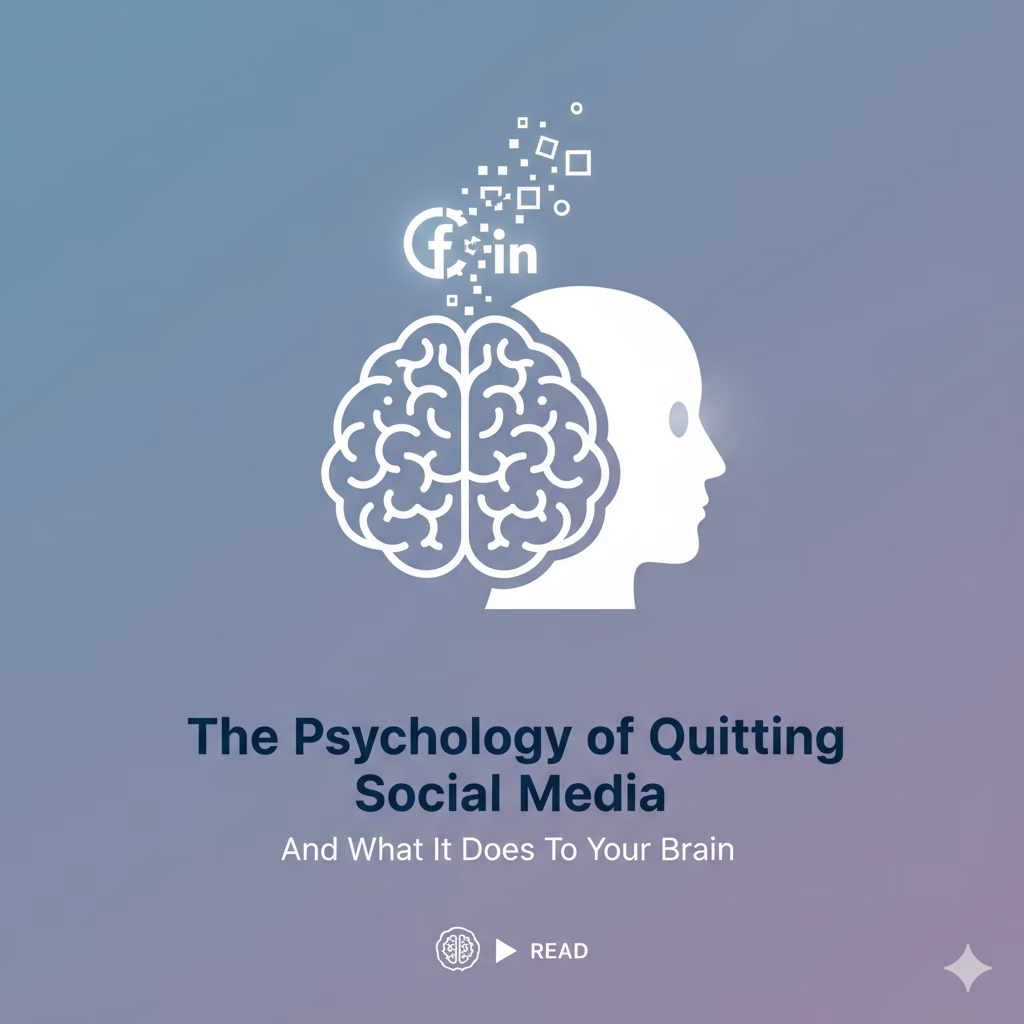
Introduction – Why Quitting Social Media Matters
Social media has become an integral part of daily life. From checking notifications first thing in the morning to scrolling endlessly before bed, it’s easy to feel like life revolves around these platforms. Yet, behind the likes, shares, and comments, there’s a hidden cost: your brain.
Quitting social media isn’t just a lifestyle choice—it’s a psychological experiment on yourself. Studies in neuroscience and psychology reveal that constant engagement with social media alters brain chemistry, attention span, emotional regulation, and even decision-making processes.
The focus of this article, “Quitting Social Media,” is to explore the psychological effects of quitting social media, what happens in your brain immediately and over time, and how you can leverage this knowledge to regain focus, creativity, and mental clarity.
Whether you’re considering a short-term digital detox or a long-term break, understanding the science behind social media addiction will help you navigate this journey of Quitting Social Media successfully.
The Neuroscience Behind Social Media Addiction
Social media platforms are designed to be addictive. The mechanism is similar to gambling or other compulsive behaviors:
- Dopamine Feedback Loops
Every like, comment, or notification triggers a release of dopamine—a neurotransmitter associated with reward and pleasure. Over time, your brain starts craving these digital rewards, creating compulsive checking behaviors. - Variable Reward Systems
Social media platforms use algorithms that deliver unpredictable rewards. Just like a slot machine, sometimes you get a high engagement post, sometimes nothing. This unpredictability keeps your brain in a state of anticipation, making it difficult to disengage. - Cognitive Overload
Endless scrolling exposes your brain to massive amounts of information. Multi-sensory input, constant notifications, and rapid context switching overwhelm cognitive processing, reducing your ability to focus on important tasks. - Social Comparison Effects
Viewing curated content triggers subconscious comparisons, activating stress responses and negative emotions. Over time, this alters your emotional regulation and self-perception, leading to anxiety, envy, or dissatisfaction.
Immediate Effects After Quitting Social Media
Quitting social media—even for a short period—can trigger noticeable changes. Some common immediate effects include:
- Withdrawal Symptoms: Anxiety, restlessness, or the urge to check apps
- Mood Fluctuations: Initial irritability or boredom as your brain adjusts
- Improved Focus: Without constant notifications, attention span starts to recover
- Time Recovery: Hours previously spent scrolling can now be redirected to productive or creative activities
These immediate effects are temporary. The brain undergoes a period of neurochemical recalibration, gradually reducing dependence on external digital rewards.
Long-Term Benefits to Your Brain and Mental Health after Quitting Social Media
Over weeks and months, quitting social media can produce profound neurological and psychological benefits:
- Enhanced Attention Span
Your brain regains the ability to concentrate for extended periods, improving learning, memory, and productivity. - Emotional Stability
Removing constant comparison and digital stress reduces anxiety, irritability, and depressive symptoms. - Neuroplasticity Gains
Quitting encourages the brain to form new neural connections around real-world experiences, hobbies, and meaningful social interactions. - Improved Sleep Patterns
Without late-night scrolling, melatonin production stabilizes, enhancing sleep quality. - Greater Creativity
Freeing your mind from endless feeds allows deeper reflection and imagination.
Common Challenges and How to Overcome Them
Quitting social media is rarely easy. The brain resists change because it’s wired for reward-seeking. Common challenges include:
- Fear of Missing Out (FOMO)
- Social Pressure to stay connected
- Boredom when idle moments are no longer filled with scrolling
Strategies to overcome these challenges include:
- Gradual Reduction instead of cold turkey
- Mindful Replacement Activities, like reading, journaling, or outdoor exercise
- Accountability Partners, friends, or family who support your detox
Rare Strategies for a Successful Social Media Detox
Habit 1: Scheduled Social Media Windows
Allocate specific times of day for checking social media, e.g., 20 minutes after lunch. This reduces compulsive checking while maintaining minimal connectivity.
Habit 2: Mindful Replacement Activities
Replace scrolling with activities that stimulate the brain in positive ways—creative projects, learning new skills, or meditative practices.
Habit 3: Digital Minimalism Journaling
Track your digital usage, feelings, and triggers. Journaling increases self-awareness and helps break habitual behaviors.
Habit 4: Social Accountability Practices
Share your goal with friends or communities committed to reducing social media. Social accountability reinforces adherence.
Habit 5: Gradual Reduction Instead of Cold Turkey
Start by reducing usage by 20–30% per week. Gradual reduction prevents withdrawal stress and increases long-term adherence.
Real-Life Stories: The Human Side of Quitting Social Media
Case 1: The University Student
Sara, a university student, found herself spending nearly six hours daily on Instagram and TikTok. Despite being active online, her grades were slipping, and she struggled with concentration. After deleting her accounts for a semester, Sara reported:
- Improved academic focus
- Increased social confidence in real-life interactions
- Better sleep quality
Her experience aligns with research showing that digital detoxes improve executive function and reduce procrastination.
Case 2: The Corporate Professional
Ahmed, a 32-year-old marketing executive, quit Facebook and LinkedIn for 90 days. Initially, he felt isolated and disconnected. But as weeks passed, he developed deeper bonds with colleagues, rediscovered hobbies like painting, and reported a 25% increase in productivity at work.
Case 3: The Creative Freelancer
Lena, a freelance writer, struggled with comparison and imposter syndrome fueled by social media. After quitting Twitter and Instagram, her creativity flourished. She completed two books in a year, attributing her success to mental clarity and freedom from constant external validation.
What Neuroscience Reveals: Your Brain Without Social Media
When you quit, your brain undergoes measurable changes. Let’s break it down scientifically:
- Reduced Dopamine Hijacking
Without the constant “ding” of notifications, dopamine levels begin to stabilize. This reduces compulsive checking behaviors and restores balance in the brain’s reward system. - Strengthened Prefrontal Cortex
The prefrontal cortex, responsible for decision-making and self-control, regains power when it’s no longer overwhelmed by constant digital stimuli. This leads to better impulse control and stronger willpower. - Improved Hippocampal Function
The hippocampus—essential for memory—benefits from reduced cognitive overload. People often report better memory recall and mental sharpness after extended detox periods. - Amygdala Calming
The amygdala, which processes fear and anxiety, calms down when social comparison and online drama are removed. This results in improved emotional regulation and reduced anxiety levels.
Psychological Benefits Over Time
1. Reduced Anxiety and Depression
Constant exposure to online drama and curated perfection fuels mental health struggles. Quitting removes this trigger, leading to noticeable mood stabilization.
2. Increased Self-Esteem
Without the constant comparison trap, individuals begin appreciating their own lives. Real-world achievements become more meaningful than virtual validation.
3. Strengthened Real-Life Relationships
Face-to-face communication engages deeper emotional and non-verbal cues, creating stronger and more meaningful social bonds.
4. Greater Sense of Time Ownership
People often realize they have an extra 2–4 hours daily once social media is removed. This newfound time can be invested in skills, relationships, or relaxation.
Risks and Misconceptions of Quitting Social Media
It’s important to note that quitting isn’t always smooth:
- Risk of Loneliness: Many fear disconnection from friends and trends. This can be countered by substituting online connections with physical or hobby-based communities.
- Professional Concerns: Some jobs rely on social media. The solution isn’t always full quitting—it can mean controlled use with boundaries.
- Myth of “Instant Happiness”: Quitting won’t automatically make life perfect. It’s a tool for mental clarity, not a magic solution.
Integrating Quitting Into Daily Life
Here are practical ways to Quitting Social Media:
Step 1: Identify Your Triggers
Are you opening apps out of boredom, stress, or habit? Recognizing triggers helps you replace them consciously.
Step 2: Fill the Gaps with High-Value Activities
Instead of simply removing social media, replace it with:
- Reading books or audiobooks
- Outdoor walks and exercise
- Learning a new skill or language
- Meditation or journaling
Step 3: Use Technology to Fight Technology
Ironically, some apps can help you quit other apps. Screen limiters, website blockers, and “focus mode” features help reduce temptation.
Step 4: Redefine Social Connection
Find alternative ways to connect with people—phone calls, in-person meetups, or joining local clubs. Real connections are more fulfilling and lasting.
Step 5: Gradual Lifestyle Integration
Instead of a one-time detox, integrate digital minimalism as a lifestyle. This means using technology purposefully rather than impulsively.
The Role of Identity and Self-Image
One of the deepest impacts of quitting is on identity formation. On social media, identity often becomes tied to how others perceive you—likes, followers, comments. Once removed, people rediscover authentic identity, guided by personal values rather than digital validation.
This psychological freedom strengthens self-image and reduces dependence on external approval, empowering individuals to take risks and pursue passions without fear of judgment.
A Historical and Cultural Perspective on Disconnection
Quitting social media may feel like a modern experiment, but the concept of intentional disconnection has deep roots. Across history, humans have practiced forms of withdrawal from constant stimulation:
- Religious Retreats: Monks, Sufis, and spiritual seekers often stepped away from society for reflection, prayer, and inner growth.
- Philosophical Detachment: Ancient philosophers like Seneca and Epictetus emphasized withdrawing from unnecessary noise to cultivate wisdom.
- Cultural Rituals: Many indigenous cultures practiced periodic “quiet time” in nature, valuing silence as nourishment for the mind.
In this context, quitting social media is not an alien act—it’s a modern reflection of an age-old human need to protect mental clarity and reclaim inner peace.
Age Matters: How Quitting Social Media Impacts Different Generations
Teenagers and Young Adults
- Teens are the most vulnerable because social media shapes identity and peer acceptance. Quitting can feel isolating at first, but eventually helps build stronger offline confidence.
- They often report better academic performance, stronger friendships, and improved mental health when reducing screen time.
Working-Age Adults
- For professionals, quitting can enhance focus, productivity, and work-life balance.
- It reduces “mental clutter” caused by endless notifications, freeing space for innovation and deep thinking.
Seniors
- Older adults often use social media to reduce loneliness. Quitting abruptly might increase isolation if not replaced with real-world communities.
- However, those who balance digital minimalism with in-person social activities report greater life satisfaction.
Quitting Social Media and Creativity Gains
One of the most surprising outcomes of quitting is the resurgence of creativity. Here’s why:
- Mental White Space
Without the flood of information, your brain reclaims “white space” for reflection and imagination. - Deeper Boredom, Deeper Ideas
Boredom sparks innovation. When you resist the urge to scroll, your brain begins generating ideas to fill the gap. - Enhanced Problem-Solving
Freed from algorithmic noise, people rediscover their natural curiosity and critical thinking. - Artistic Productivity
Many writers, musicians, and artists report finishing projects faster when disconnected. The absence of digital distraction fuels their creative process.
Advanced Strategies for Long-Term Balance
1. The 30-Day Social Reset
Commit to quitting for 30 days. Use this time to:
- Rewire daily routines
- Track improvements in mood and focus
- Reintroduce only purposeful platforms afterward
2. The Two-Device Rule
Keep one phone for essentials (calls, banking, navigation) and another for minimal social use. This separation creates psychological boundaries.
3. Silence as a Superpower
Block one hour of total silence daily—no screens, no conversations, just reflection. This boosts mental clarity and improves emotional regulation.
4. Deep Work Scheduling
Use time once spent scrolling for “deep work”—high-focus tasks like studying, writing, or coding. Protecting these hours transforms productivity.
5. Reward Substitution
Since the brain craves rewards, substitute digital likes with small, real-life rewards:
- Marking progress on a wall calendar
- Enjoying a favorite tea after completing a task
- Sharing achievements face-to-face with a friend
Redefining Social Connection in the Modern World
Quitting doesn’t mean isolating—it means redefining connection.
- Instead of chasing likes, you invest in meaningful conversations.
- Instead of following trends, you build real friendships rooted in trust.
- Instead of scrolling through other people’s lives, you create your own stories.
This shift strengthens empathy, communication skills, and authentic social bonds—qualities often weakened by digital dependency.
The Productivity Revolution After Quitting Social Media
Here’s what many report after just a few weeks:
- Sharper Focus: The brain adjusts to single-tasking, boosting efficiency.
- More Time: Quitting returns 2–5 hours daily, enough to learn a new skill or launch a side hustle.
- Better Decision-Making: The absence of endless opinions clears mental fog, empowering independent thought.
- Work-Life Balance: Without digital interruptions, people separate work from personal life more effectively.
A Rare but Real Risk: Digital Substitution
One common mistake is replacing social media with other digital distractions like video games, binge-watching, or endless news feeds. This simply swaps one dopamine trigger for another.
The real transformation comes when free time is channeled into:
- Physical exercise
- Outdoor experiences
- Skill-building
- Face-to-face relationships
The Deeper Psychological Transformation
Ultimately, quitting social media isn’t just about your phone—it’s about identity, freedom, and purpose.
- You rediscover who you are without filters or hashtags.
- You free your brain from manipulation by algorithms.
- You redirect energy toward meaningful goals, authentic relationships, and self-discovery.
It’s less about “leaving technology” and more about choosing intentional living.
Scientific Studies That Prove the Impact
While personal stories are compelling, the strongest evidence comes from research. Here are some studies that reveal what happens to the brain and behavior after quitting social media:
- The Happiness Experiment (2016, University of Copenhagen)
- Over 1,000 participants quit Facebook for just one week.
- Result: They reported significantly higher life satisfaction and lower stress.
- Stanford University Study on Attention (2018)
- Researchers found that constant social media use shortened attention spans.
- Quitting improved participants’ ability to concentrate on deep, meaningful tasks.
- University of Pennsylvania (2019)
- Participants who limited social media to 30 minutes per day reported reductions in loneliness and depression within three weeks.
- Harvard Medical School Report (2020)
- Noted that reduced screen time improved sleep quality by stabilizing melatonin release.
- Oxford University Research (2022)
- Showed that heavy social media users had altered brain structures in areas linked to emotional regulation. Detoxing reversed many of these changes.
Long-Term Life Changes After Quitting Social Media
Quitting isn’t just a mental reset—it transforms lifestyles. Here are rare yet powerful benefits that people often discover months later:
- Reclaimed Ambition: Instead of watching others succeed online, people redirect energy to their own projects.
- Deeper Self-Awareness: Journaling and reflection replace the performative nature of posting.
- Financial Freedom: Less exposure to ads and trends reduces impulsive online spending.
- Healthier Relationships: Partners and families report more quality time together without phones in the way.
- Inner Peace: Many describe a “quiet brain,” free from the buzzing urgency of notifications.
Step-by-Step Plan: How You Can Try It
If you’re ready to test this for yourself, follow this structured 30-day plan:
Week 1 – Awareness
- Track your current usage with a screen-time app.
- Identify your emotional triggers for opening apps.
Week 2 – Reduction
- Delete the most distracting apps from your phone.
- Keep only necessary tools (calls, email, work apps).
- Replace scrolling time with reading or journaling.
Week 3 – Detox
- Completely log out of all social accounts.
- Redirect cravings by doing physical activities (walking, stretching, sports).
- Practice mindful boredom—sit in silence without replacing it with other screens.
Week 4 – Redesign
- Reintroduce only platforms that add clear value (work-related or educational).
- Set strict boundaries (timed use, no notifications, scheduled windows).
- Reflect on gains in focus, mood, and creativity.
By the end of this month, most people will notice profound clarity and begin living with intention.
The Future Without Constant Social Media
It’s important to understand that quitting doesn’t mean abandoning technology forever. Instead, it points toward a future where humans control technology, not the other way around.
- Digital Minimalism Movement: More people worldwide are adopting minimal, mindful tech use.
- Workplace Shifts: Companies are beginning to value deep work and discourage constant online distraction.
- Generational Change: Younger generations are leading detox movements, choosing purpose over digital noise.
This trend suggests that the act of quitting today could become a mainstream cultural practice tomorrow.
A Motivational Conclusion
Social media promises connection but often delivers distraction, comparison, and anxiety. Quitting is not about rejecting technology—it’s about reclaiming your brain, your time, and your identity.
The psychology of quitting social media reveals a simple truth:
- Your brain thrives in clarity, not chaos.
- Your creativity flourishes in silence, not noise.
- Your real life is worth more than digital validation.
So, whether you take a one-week break or commit to a long-term detox, know this: your brain is wired for growth, resilience, and balance. By stepping back from constant digital bombardment, you give yourself the rarest gift of all—the freedom to be fully present in your own life.
Final Call to Action
If this article inspired you, here’s what to do next:
👉 Start your own 30-day social media detox.
👉 Share your experiences in the comments so we can support one another.
👉 And don’t forget—check back for more unique topics like Uncommon Habits That Boost Productivity and other rare strategies to boost your daily life creativity.
Together, we can build a world where technology serves us—not the other way around.
Quitting Social Media
Internal Links (planned):
- Link to Post (Digital Minimalism: How Less Online Time Improves Life)
- Link to Post (Uncommon Habits That Boost Productivity)

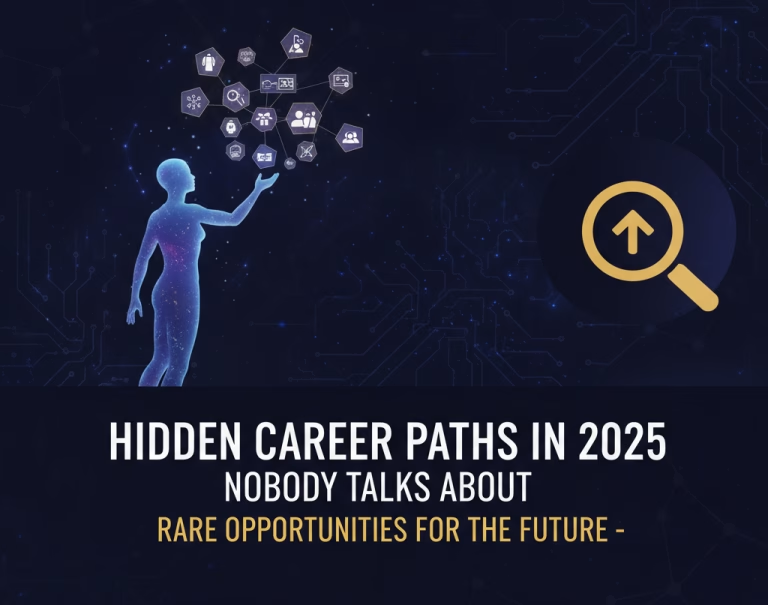
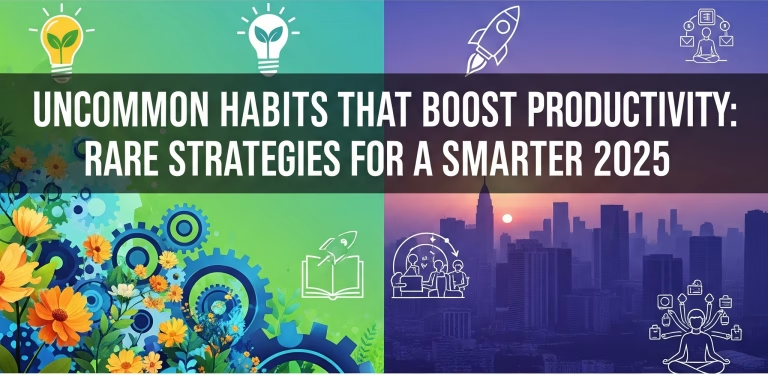
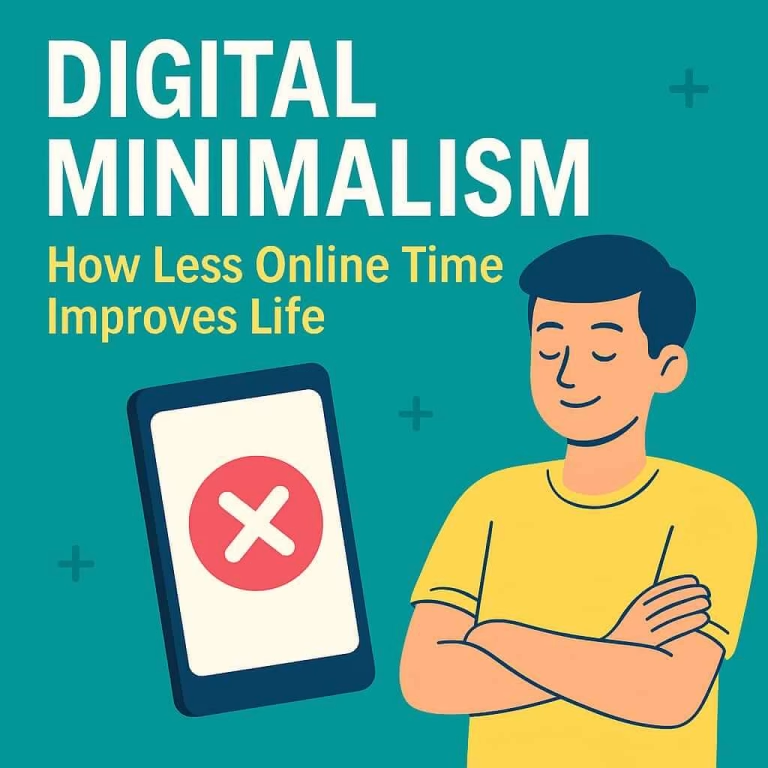
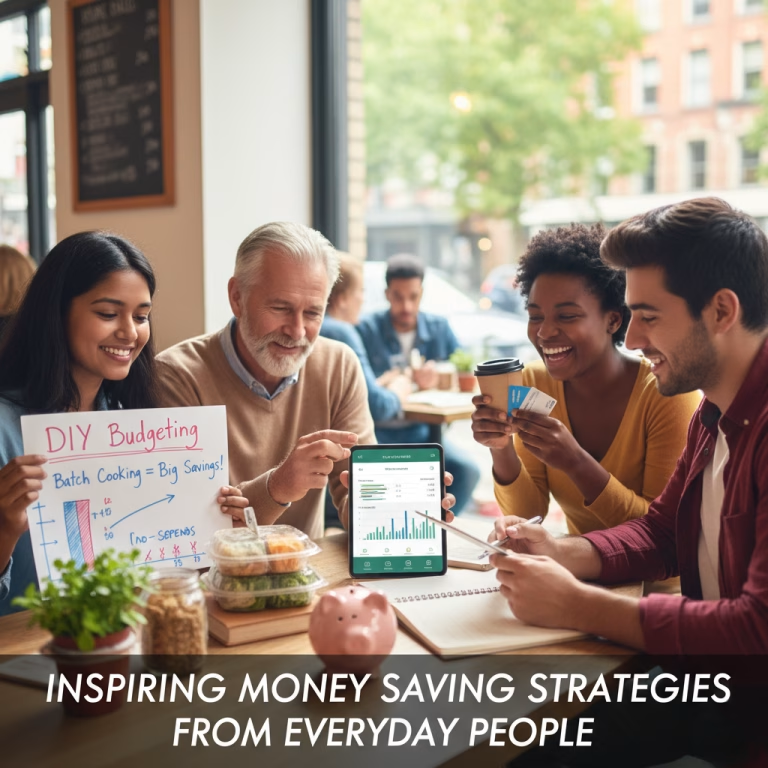
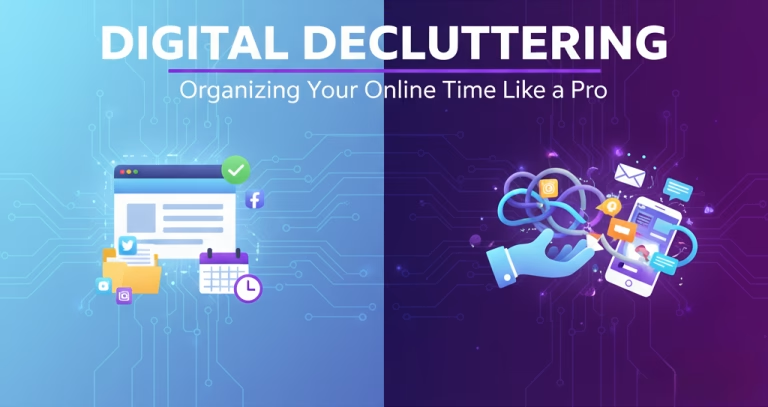
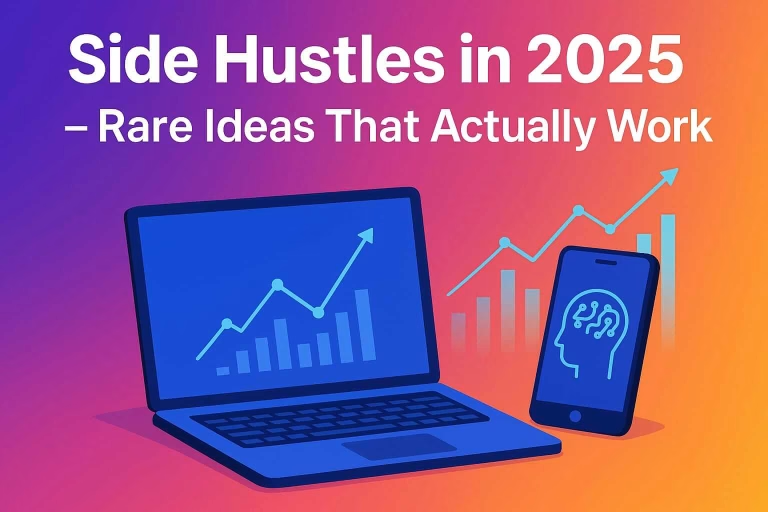
One Comment